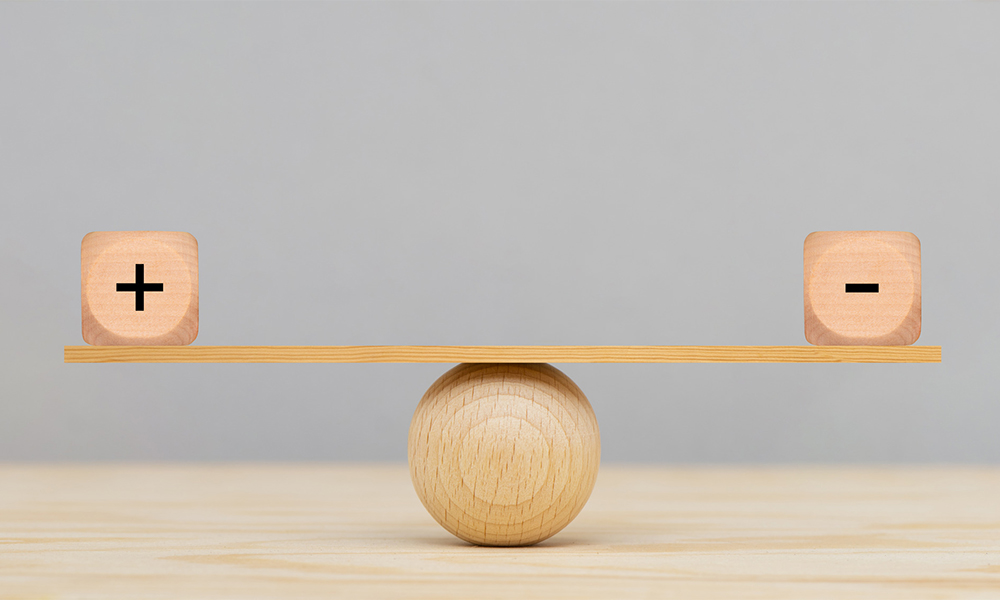For many of us, writing can be a great way to remember things, get our thoughts organised and to introspect. However, in today’s age of instant communication and tweets, writing – especially in the long form – seems to be taking a back seat.
Someone I met recently talked about taking the time to write down their thoughts and experiences every couple of days. I found this to be a very interesting idea. So, in my message today, I want to suggest keeping a leadership journal.
We all know that communicating effectively is critical for any leader. Building deeper self-awareness is also very important. And taking time out to write things down in a journal can be a great way to channel this.
Writing, in itself, is cathartic. Just being able to express how you feel – good or bad – putting it all down there, helps you think through things more clearly. This translates into better, more informed decisions. It is also a great way to build your own archive of sorts, of memories and ideas – things that you may want to revisit later and draw from.
If you’re looking for validation or even some inspiration, you don’t need to look very far. Journaling has been hugely popular through the decades with all kinds of people – musicians, writers, scientists, industrialists, directors, politicians. This is good old fashioned journal keeping, not counting the numerous digital platforms that you could opt for today.
Author Mark Twain kept 50 journals through his life, recording his thoughts on all kinds of topics and the people he met. Much of this made its way into his books. Beethoven would carry his journal around and write down inspiration for music, as it came to him. Some of his most famous compositions started out as scribbles. Star Wars director, George Lucas, carried a notebook around at all times to jot down ideas for his storyline. The famous robot was named after something Lucas noted down, when asked for R2D2, short for ‘Reel 2, Dialogue 2’, in an entirely different context.
Benjamin Franklin committed himself to living a life based on 13 virtues. To track his progress, he made a chart in his journal, which mapped out each against a day of the week. At the end of each day, he would mark out any virtue that he had violated. Pablo Picasso would detail his preliminary sketches in his journal for over six months before starting to paint. Thomas Edison kept an ideas book. Leonardo Da Vinci wrote extensively and used his journal to explore, question and create. The diary of Anne Frank is one of the most widely read accounts of life during World War 2. Musician Kurt Cobain’s diaries, with records of his lyrics and musings, are popular reads today. You can read more about some of these journal journeys at http://www.artofmanliness.com/2010/09/13/the-pocket-notebooks-of-20-famous-men/
Professor Nancy Adler wrote a great blog post on journaling recently: https://hbr.org/2016/01/want-to-be-an-outstanding-leader-keep-a-journal. From her as well as others, here are some journaling suggestions:
1. Get a journal
You will have much to choose from by way of format, if you are looking to record your thoughts, whether by voice message or in notes on an app. Choose something that best matches your style and routine. But given just how well the old-fashioned way of getting a journal and doing some writing by hand works, most people who do this would tell you that it is really worth a shot. Chances are you have probably not journaled in this format for a while. It will make you sit down, put away your phone or tablet and the distractions that come with it and get some quality, quiet time. Just the act of writing can make all the difference.
Any kind of journal will do, but if you want to get creative, you could get a copy of one of these – Leadership Insight by Nancy Adler (http://www.amazon.in/Leadership-Insight-Nancy-J-Adler/dp/0415877628) or the Wreck This Journal series by Keri Smith (http://www.amazon.in/Wreck-This-Journal-Bundle-Set/dp/0399162739/ref=la_B001JRZIY6_1_13?s=books&ie=UTF8&qid=1455284124&sr=1-13).
2. Start small
Writing and writing to record at that too, can be a fairly daunting exercise sometimes. To add to that, this is writing that requires you to introspect. It is a big reason why many people shy away from it. So, you don’t have to start by filling out many pages. Start small. Get a journal and try writing a few lines every day. You don’t even need to write in long form – bullet points will do. Ease yourself into it. See how you feel about it.
3. Find a place for it in your routine
You need to choose the right time and space for this reflection. Most times, the morning – before you start out on your day – is a good time to think. Some people also find the end of the day – just before they turn in for the night – the best time to reflect on the day gone by. Others like to carry their journals around and jot down ideas and thoughts as and when they come to them. What really matters is that you are comfortable and that this is time that you can set aside for yourself. It doesn’t even need to take that long. 15-20 minutes could suffice. Where you do this also matters. Choose a space where you can be alone for this time. Try to keep this time and space constant, if you can, and build it in as part of your routine.
4. Don’t overthink it
You should enjoy this, so don’t be tough on yourself with the rules. There is no right or wrong way either. Instead of overthinking what you should do, just get started. Write whatever comes to mind. You will find the questions coming to you as you write more. You can even change your style, as and when you want to. It really should be just about what works for you.
If you need something to prompt yourself with when you’re getting started, you can try the ‘Leadership Journal Rule of 3’ that I came across recently.
- Three things I’m grateful for today
- Three things I did well today
- Three things I learned today
5. Keep it private
You don’t need to share your journal with anyone. In fact, sometimes it is better to make it a point not to. Let this be your personal record. Don’t filter anything or write to be read. Try being as honest as you can with yourself. It will be a much more valuable exercise and enjoyable too. At the same time, you can choose to use your reflections and discoveries from this to share with your family, friends and colleagues.
6. Build in time to reflect
The most powerful part of journaling, is the memory that you build. These are all things and moments that you may have forgotten about, sooner or later. Write over a period of time and you will have much to look back on. So, finding the time to read some of what you have written, is as important, if not more, than the writing itself. Discover the common threads, pick up on ideas that stand out, follow up on discussions and just learn more about yourself. And use this to ask yourself more questions on what matters to you.
Why not give it a try? Get yourself a journal and try writing for a few weeks? I look forward to hearing about your experiences.








You are absolutely correct, writing and keeping a record in hard form always helps.
Earlier we used to have a diary to maintain important telephone nos. With the arrival of mobile phones and with a memory running into GBs we have stopped keeping a diary.
But imagine the nightmare we’d have to face when our mobile phone is lost. So old/conventional wisdom of keeping a diary will help you in overcoming this problem.
A journal is, I feel, also an accumulation of many experiences, learnings, dreams and goals which reflects what a person becomes over a period of time. Rightly said it is very important to reflect on our own journals and notes to understand our own journey of evolution and sometimes remind us of our own lost, forgotten goals.
Yes, and also to mention 3 things or acts which were not done correctly could be done in a better way. And how it would be done better. This will make us a better person day by day. I know this does help.